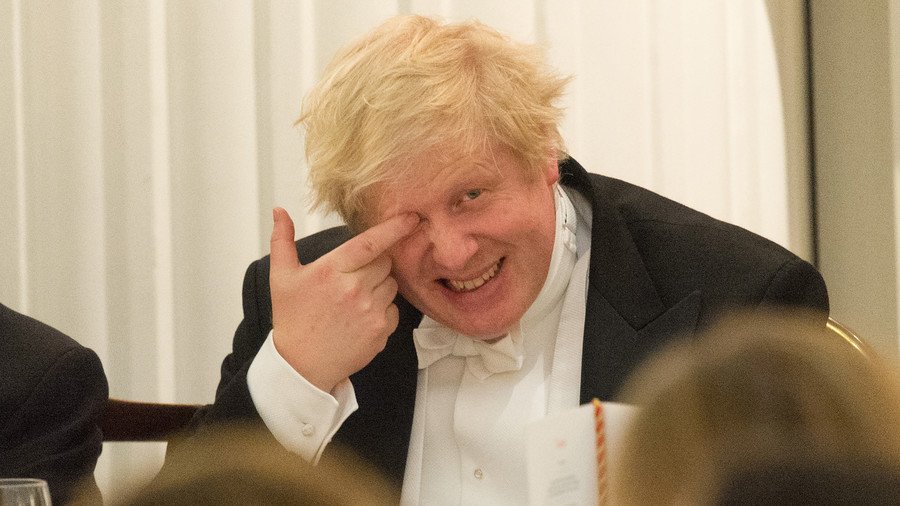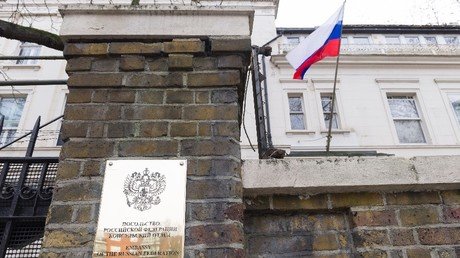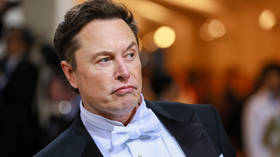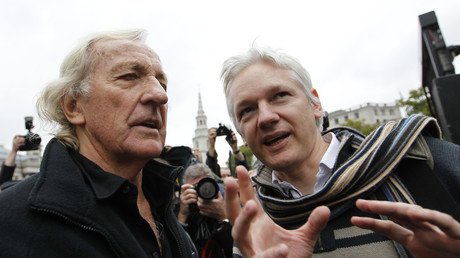As calls for resignations abound, what now for the UK government’s case after Porton Down admission?

An admission from the UK’s main defense lab has thrown Theresa May’s accusations of Russian ‘culpability’ for the poisoning of Sergei and Yulia Skripal into doubt.
British scientists at Porton Down announced that they are unable to establish the origin of nerve agent A-234 (also known as "Novichok"). Gary Aitkenhead, chief executive of the Defense Science and Technology Laboratory at Porton Down in England, told Sky News: "We were able to identify it as Novichok, to identify that it was military-grade nerve agent.
"We have not identified the precise source, but we have provided the scientific info to government who have then used a number of other sources to piece together the conclusions you have come to."
Russia has consistently denied being behind the attack on the Skripals in Salisbury on March 4. However, in the eyes of the UK government, their ‘culpability’ has never been in doubt.
Following the poisoning, May was unequivocal about the source of the nerve agent – giving Russia an ultimatum and demanding an explanation for the incident, stating: “Either this was a direct act by the Russian state against our country, or the Russian government lost control of this potentially catastrophically damaging nerve agent and allowed it to get into the hands of others.” When May considered that the ultimatum had not been met, the UK PM accused the Kremlin of being “culpable” for the incident.
Labour leader Jeremy Corbyn took a more cautious tone, calling for the proper channels of international law to be utilized before blame is attributed. Corbyn was attacked by Tories and some Labour MPs alike, for his supposedly weak stance on Russia.
May’s accusations were parroted by many of her ministers, as well as her allies in the press. None were more vocal in their attacks than Foreign Secretary Boris Johnson, who in an interview with the German publication Deutsche Welle relayed a conversation that he had with a Porton Down scientist, claiming that “the people from Porton Down... said there’s no doubt” that the nerve agent is Russian.
Johnson’s assertion of the laboratory’s confidence was challenged by ex-British ambassador Craig Murray, who said he had sources who stated that they had been “pressured” into blaming Russia, and that they were still unsure as to the origin. This position appears to have been vindicated following Porton Down’s statement.
The apparent discrepancy in what Johnson and the PM have claimed, contrary to the statement given from Porton Down, has already led to calls for front-bench resignations.
So what evidence was Boris Johnson going on when he said people at Porton Down told him "there's no doubt"? This man is our Foreign Secretary, remember. What action will the Prime Minister take against him given that this now seems to be false? pic.twitter.com/hdw9dCCHgN
— Liam Young (@liamyoung) April 3, 2018
Boris Johnson said that Porton Down "categorically" knew the source of the nerve agent was Russia—"no doubt".Porton Down now says it cannot know if the source was Russia.Surely this is a resignation issue for Johnson, as the UK's chief diplomat, on a matter so serious.
— Alex Nunns (@alexnunns) April 3, 2018
Important this - even though much of HMG maintained the 'highly likely' line + did not suggest that origin of Salisbury Novichok had been traced to Russia, some overstated their case so there could now be a political price to pay https://t.co/aBUJUv9rNo
— Mark Urban (@MarkUrban01) April 3, 2018
Further testing on the nerve agent sample will be carried out by the Organisation for the Prohibition of Chemical Weapons (OPWC). However, at this juncture, the UK’s assertion of Russian culpability has never looked more tenuous.
If you like this story, share it with a friend!















